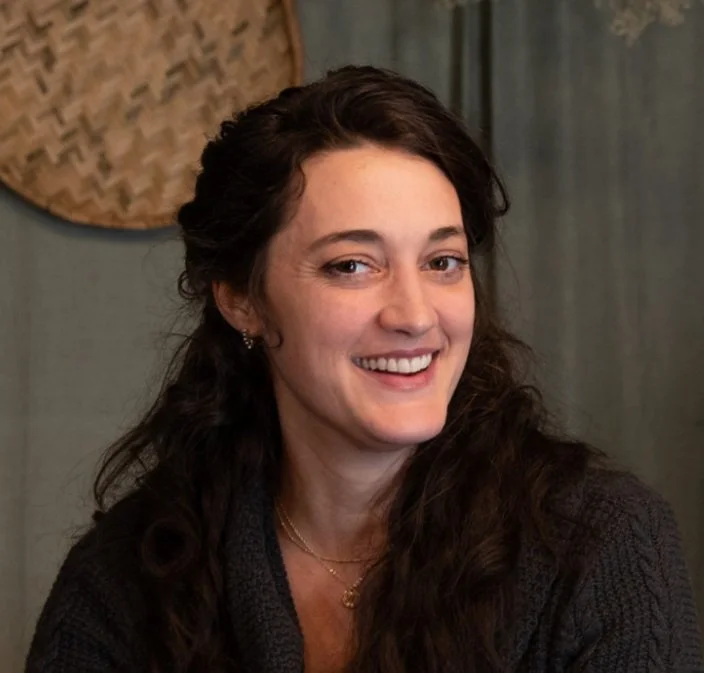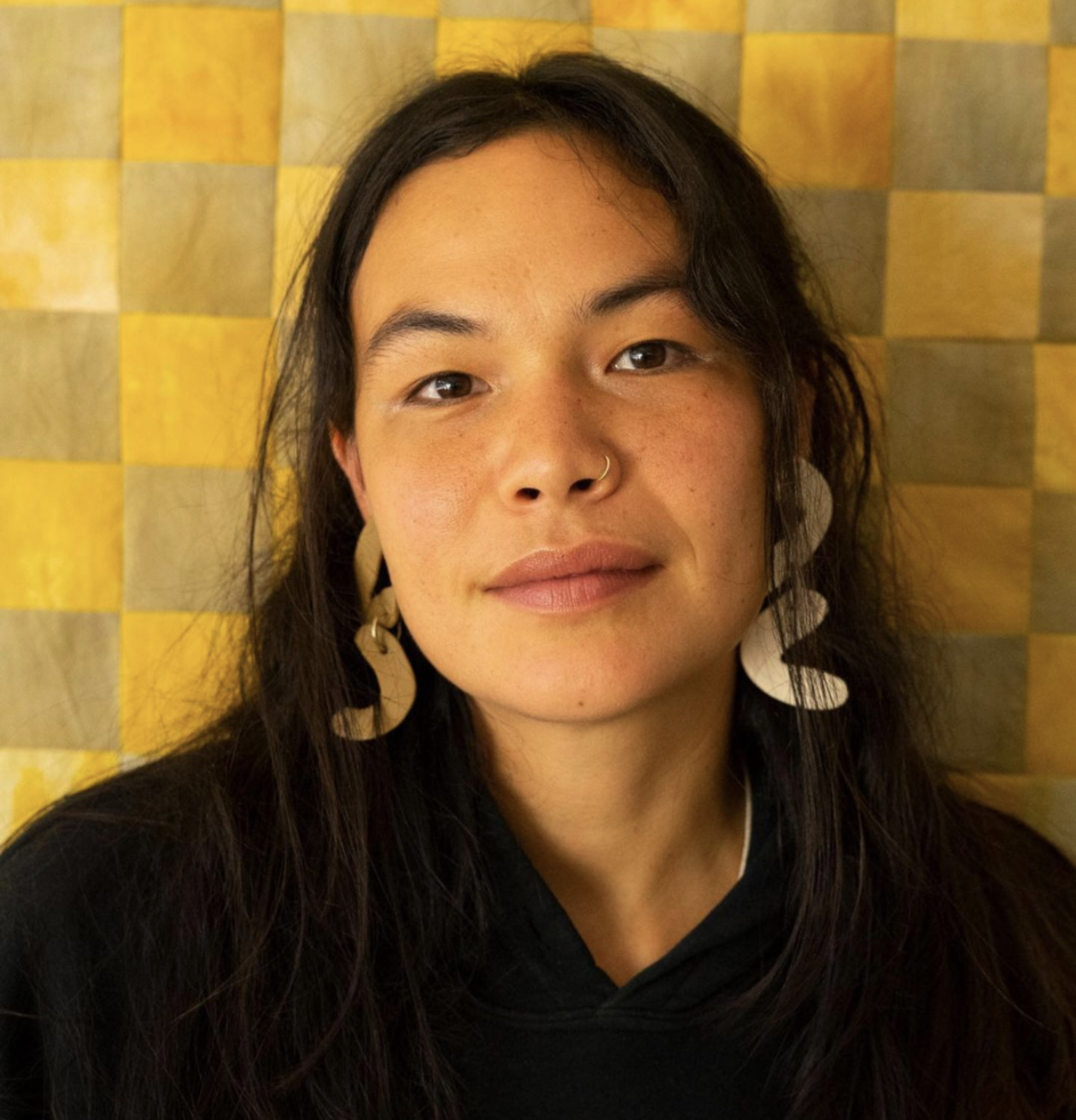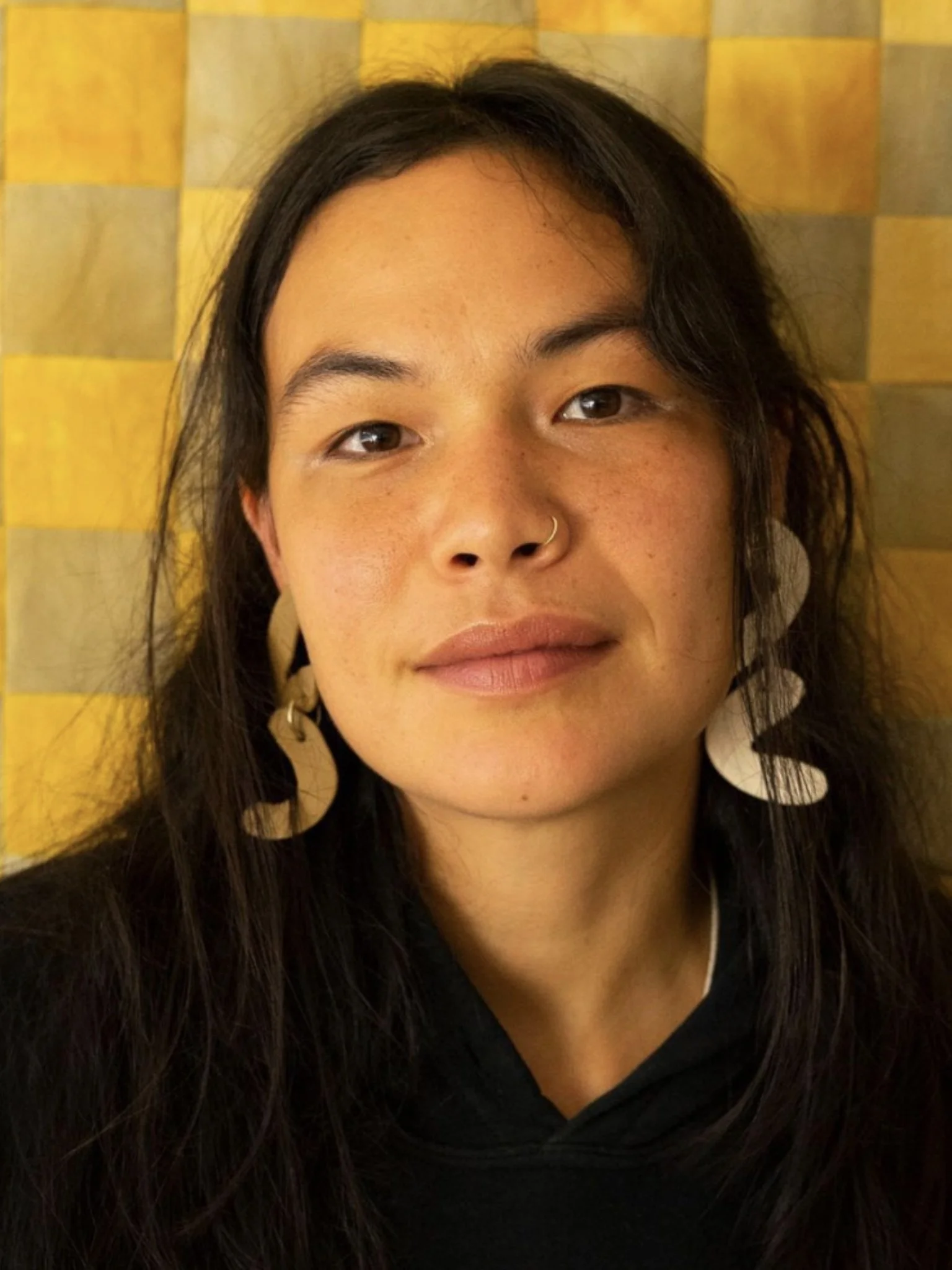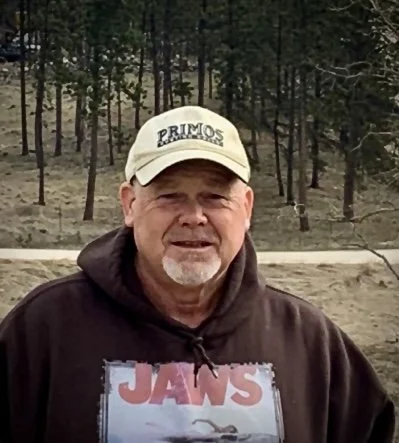Meet Your Instructors
-

Kyle Lybarger
Native Habitat Project
Land Management for Biodiversity
Hands-on Prescribed Burns
-

Cameron Strouss BSc., FH, RH (AHG) Aromatherapist
The Deep Roots School of Foraging & Herbal Medicine
Wild Foraged First Aid
Foraged Tea
Medicinal Trees
Asking Nature the Right Questions
-
Jesse Akozbek
Feral Foraging
Foraging Fundamentals | The Four Pillars
Prolific Wild Fruit of the Southeast
Hands-on Processing Black Walnut
-

Chris Bennett
Author of Southeast Foraging: 120 Wild and Flavorful Edibles from Angelica to Wild Plums
Finding Wild Edibles: A Flexible Foray
Cooking Wild Edibles: A Flexible Cooking Class
How to Use Wild Edibles in Your Everyday Life
-

Sarah Bell
Fiber Artist
Wild Basketmaking: Foraging for Vines and Fibers
Wild Basketmaking: Weaving a Simple Basket
Natural Dye Class (Sumac, Acorns)
Pine Needle Baskets
-

Spencer Lowry
Alabama Mushroom Society Vice President
Introduction to Mushroom Morphology and Identification Basics
Advanced Morphological Identification in the Field
From Identification to Edibility – What Makes a Mushroom Safe?
-

Holt Akers-Campbell
Walker County Alabama Regional Extension Agent, Farmer & Forager
Native Fruit & Nut Plant Propagation
Wild Simulated Forest Farming
Invasive Species Removal Strategies
-

Chris Keenum
Professional Trapper & Hunter
Trapping on Land
Water-Loving Animal Hunting & Trapping
Butchering 101
SEFC Class Schedule
Day 1 - Friday the 14th
9:00-10:15: Class 1 (1 hr 15 min)
Foraging Fundamentals | The Four Pillars* (Jesse Akozbek): Learning foraging can be overwhelming, with hundreds of species out there to learn, some with dangerous lookalikes, others not, then you need to actually find them, some require specific processsing, and more! This class is designed to arm with you your personal foraging compass so you can navigate the fundamental components of all of the skills that make up foraging so you'll know exactly what and how to improve.
Native Fruit & Nut Plant Propagation Class (Holt Akers-Campbell): Going over ecological importance of natives as well as propagation options and techniques for wild-stewarding native fruits and nuts, including cuttings, grafting, stratification, scarification, layering, etc; how to responsibly wild-steward with those methods. Also a good time of year to collect elderberry cuttings as a hands-on component. Plenty available at McDowell. Identify pawpaw, blueberry, blackberry, persimmon, red mulberry, black walnut, chestnut etc., which are all on the property and identifiable in March, and discuss how to wild-steward and propagate them.
Finding Wild Edibles: A Flexible Foray (Chris Bennet): How and where to find wild edibles. From where to find wild edibles to what to look for. You don’t have to go way out into the woods to go foraging and this class will give you the skills to find wild edibles any place you go.
10:30-11:45: Class 2 (1 hr 15 min)
Introduction to Mushroom Morphology and Identification Basics (Spencer S Crowley): In this class, we’ll introduce participants to the fundamental morphological features of mushrooms. We'll break down key structures such as caps, gills, stems, and spore-bearing surfaces. We'll also discuss how these characteristics relate to different mushroom families, and introduce tools like field guides and apps to aid in identification.
Wild Simulated Forest Farming Class (Holt Akers-Campbell): Wild-simulated forest farming methods for woodland botanicals like ginseng, bloodroot, goldenseal. Innoculate a mushroom log for a hands-on component with a native species. Also identify mushrooms and woodland herbs on a walk.
Wild Basketmaking: Foraging for Vines and Fibers (Sarah Bell): Learn the ins and outs of harvest kudzu, bark, wisteria, and other vines used in basket weaving. We will cover the best time of year, what parts of the plant to harvest, and how to process the plant for weaving.
1pm - 2:15: Class 3 (1 hr 15 min)
Wild Foraged Tea (Cameron Strouss): Tea is special - a window into a time where things were simpler. In this experiential class, we'll begin with a plant walk to identify and harvest tea plants, then return to prepare and taste our foraged treasures. I always enjoy checking in with my body to blend a tea for myself - What do I need today? How do I feel? What would feel good? From the wintergreen bite of Mountain Mint to the floral sweetness of violet, we'll explore taste as a way to understand plant medicine while creating and enjoying teas from plants we've gathered ourselves.
Advanced Morphological Identification in the Field (Spencer S Crowley): Building on the first class, this session will take participants into the field to practice identifying mushrooms based on their morphological traits. We’ll focus on distinguishing between look-alikes and using key features like cap texture, gill attachment, and spore color to confidently identify species. Participants will also learn how to document their finds for future reference, including taking notes and making spore prints.
Wild Basketmaking: Weaving a Simple Basket (Sarah Bell): Practice the art of random weave basketmaking using foraged vines. We will create a simple harvesting basket using a variety of foraged vines. Some material will be provided for those unable to attend the first session.
Invasive Species Removal Strategies (Kerry Steedley):
2:30 - 3:45: Breakout Session (1 hr 15 min)
Pollypore Black Light Henna (Spencer Crowley): Learn about phosphorescent and do some henna of your own.
Artistic Nature Journaling (Laramie Akozbek): Learn from artist and scientist Laramie as she shares her use of artistic journaling as a means to connect and deepen our connection to the environment and enhance our identification skills.
Day 2 - Saturday the 15th
9:00-10:15 am: Class 4 (1 hr 15 min)
Land Management for Biodiversity (Kyle Lybarger):
Wild Foraged First Aid (Cameron Strouss): A plant walk focused on medicinal plants for first aid situations. We'll identify and learn about plants that can address common injuries and ailments - from plantain poultices for insect bites to pine resin for wounds. This walk will give you the practical skills to tap into the medicine chest all around us.
Trapping on Land (Chris Keenum): Trap show and tell, most common and favortie meat animals/easiest to trapping rabbits, rodents, etc.
10:30-11:45 am: Class 5 (1 hr 15 min)
Hands-on Prescribed Burned (Kyle Lybarger):
Natural Dye Class (Sumac, Acorns) (Sarah Bell): We will cover the basics of natural dyeing, including, fabric preparation, common dyestuffs, how to dye, and the role of mordants. You will leave with an organic cotton bandana.
Water-loving Animal Hunting & Trapping (Chris Keenum): Discussion of all the possible food sources from turtles, frog gigging, fish, and beavers.
From Identification to Edibility – What Makes a Mushroom Safe? (Spencer S Crowley): This class will explore the connection between morphology and edibility. We’ll cover how to use morphological traits to differentiate between edible and toxic species, highlighting common pitfalls beginners encounter. Participants will leave with a better understanding of how to apply their identification skills to forage safely.
1:00 - 2:15 pm: Class 6 (1 hr 15 min)
Cooking Wild Edibles: A Flexible Cooking Class (Chris Bennet): Participants will learn how to use wild foods in the kitchen by learning how to use wild edibles we collect in the kitchen. This is a hands on cooking class!
Butchering 101 (Chris Keenum): In this class you will butcher a fish. You will learn the skills to feel more comfortable and confident in butchering in general with the expert instruction of Chris Keenum.
Processing black walnut (Jesse Akozbek): Black walntus provide one of the most abundant wild sources of calories and protein in the Southeast. The problem is that they can be quite tedious to process efficiently. However, with a few key methods, you can process black walnuts very quickly at well over double the speed of most other people. In this hands-on processing class we'll walk through each of them!
2:30 - 3:45 pm: Breakout Session (1 hr 15 min)
Asking Nature the Right questions (Cameron Strouss): We'll use journaling as a way to develop a relationship with plants that honors both science and intuition. Through prompts, you'll learn to observe, interact with, and learn directly from plants through all your senses. This class isn't just about identifying plants - it's about developing the right questions to ask when you encounter a new plant, creating frameworks that help you categorize and access herbal knowledge in meaningful ways.
Natural Dye: Botanical Printing (Sarah Bell): A fun and accessible class that will quickly cover natural dye basics and how to use botanical materials to print designs on fabric. You will leave with your own organic cotton bandana.
Day 3- Sunday the 16th
9:00 - 10:15 am: Class 7 (1 hr 15 min)
How to Use Wild Edibles in Your Everyday Life (Chris Bennet): This one is going to be a lot of fun! Come walk with me and learn how to use wild edibles in your kitchen every day and other fun uses for wild plants you may not be aware of.
Forgotten Wild Food of the Southeast (Jesse Akozbek): A lot of the common wild edibles you hear about aren't common in the Southeast or aren't that good here. However, there are dozens of incredible wild food species in the Southeast waiting to be found, just that very few people know about them. This class will highlight some of the BEST wild edibles that you can find here and how to use them!
Medicinal Trees (Cameron Strouss): Trees are some of our most overlooked plant medicines. In this plant walk, we'll explore the medicine cabinet growing tall all around us - from the anti-inflammatory properties of willow bark to the immune-supporting benefits of pine. We'll taste extracts made from the trees we are discussing - allowing you to experience their medicine. We can use our sense of taste and smell to ascertain the chemical profile of medicinal plants with surprising accuracy, and together, we'll hone this evolved ability while sampling tree-based preparations throughout our walk.
10:30 - 11:30 am Breakout
Herbal Tasting (Cameron Strouss): This hands-on, one-hour class explores the language of taste in herbal medicine. Learn to identify the 12 key taste categories (simple bitter, alkaloidal bitter, fragrant bitters, sweet, pungent, salty, astringent, Oily/Fatty, Acrid, Mucilaginous, and sour) through guided tastings and discover how these flavors connect to therapeutic actions. Develop your sensory vocabulary and perception skills while gaining practical insights into herb identification, quality assessment, and basic formulation principles.
Instructor Bios
Jesse Akozbek: Feral Foraging
Jesse is a forager and wants you to be one too! He is known for his technical yet approachable style of teaching foraging that gives people the confidence to forage safely and responsibly! You may have seen him through his online platform, Feral Foraging, where he posts everything from quick tips to in-depth video essays, all in pursuit of his mission of providing foraging education for all!
Cameron Strouss: Deep Roots School of Foraging & Herbal Medicine
Cameron is an herbalist, medicine maker, wildcrafter, and teacher dedicated to educating and empowering people in reclaiming health, community, and connection to the land through herbal medicine and primitive skills. She is the owner and founder of Deep Roots School of Foraging and Herbal Medicine and has studied herbal medicine for 14 years. She has over 4,000 hours of Sciences and Herbal Education with 9 years of clinical work. Cameron is a graduate of the University of Montevallo (with a Biology Degree), the Southeastern Institute for Traditional Herbal Studies and The Eclectic School of Herbal Medicine with her Clinical Herbal Certification and has been awarded her FH and RH (AHG) and is a Level 1 Aromatherapist.
Chris Bennett: Author of Southeast Foraging: 120 Wild and Flavorful Edibles
Chris Bennett is a forager, writer, cheesemonger, and trained chef. He grew up roaming the picturesque grassy hollows, dense forest, and open fields of the Appalachian foothills in central east Alabama. Chris enjoys working with top chefs around the southeast and provides unique ingredients to the area’s best restaurants. He has been featured in Birmingham Magazine, Cooking Light, Garden & Gun, Discover St. Clair, and The Hot and Hot Fish Club Cookbook. Also, he was named one of Southern Living's 50 People Changing the South for 2016. He is a frequent speaker presenting sessions at food and wine festivals around the southeast. His first book, Foraging the Southeast: 120 Wild and Flavorful Edibles from Angelica to Wild Plums, is out now from Timber Press.
Sarah Bell: Fiber Artist
Sarah Bell is an artist, farmer, and educator based in Birmingham, Alabama. Descended from Chinese and American ancestry, she grew up using art and creativity as a way to find a sense of connection to her experiences of death, familial emigration, and home. She is greatly influenced and inspired by the use of natural and sustainable materials, ancestry of people and land, as well as ancient craft processes and land tending techniques that interweave into her daily engagement with place, materiality, and its impermanence.
Spencer Lowry: Alabama Mushroom Society President
Spencer has been foraging mushrooms for over 12 years and currently serves as the Vice President and Treasurer of the Alabama Mushroom Society. He also runs an online platform called "Forage North America", where he teaches a little bit of everything. He loves to share his knowledge with beginners and help them take their first steps in mushroom foraging.
Chris Keenum: Trapper & Hunter
Chris Keenum, a seasoned trapper and hunter from Hartselle, Alabama, began learning wildlife skills at age 14 under his grandfather's guidance. Together with his wife Allison, he founded Keenum's Problem Wildlife Control, Inc. in 1996. Initially serving residential, commercial, and industrial clients, Chris now focuses exclusively on industrial wildlife management.
His extensive experience tracking and understanding animal behavior has made him a respected expert in the field. As he says, "If it has hair, feathers or scales, we handle it.
Holt Akers-Campbell: Walker County Alabama Regional Extension Agent, Farmer & Forager
Holt is a Regional Extension Agent for commercial horticulture in north Alabama with Auburn University & Alabama Extension. Before joining Extension, he worked on and managed vegetable farms for ten years in the South and New England. Holt aspires to work at the intersection of ecology and agriculture, helping growers produce food in environmentally, financially, and culturally sustainable ways. His areas of interest include market farming, agroforestry and native plant landscaping. Holt is committed to promoting research-backed, economically viable horticultural practices that consider the financial realities of commercial operations. Outside of agriculture, Holt enjoys hiking, cooking, woodworking and spending time with his family.
Kyle Lybarger: Native Habitat Project
Born and Raised in Morgan County Alabama, Kyle has been exploring the outdoors for as long as he can remember. This has led him to an interest in wildlife and eventually a Forestry Degree from Alabama A&M. After college he gained an interest in the overlooked grasslands of North Alabama which pushed him to start educating through social media and ultimately to founding the Native Habitat Project.








